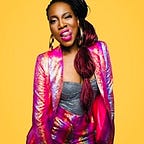Parenting has no manual… but, thank god, I love the fact that it doesn’t. Here’s why:
I have seven kids and they are all incredibly different. How could one parent guide tell me what to do?
No one can tell you what to do when it comes to your kids, because they don’t know them, and the truth is neither do you, at least not fully. You may know what they like to eat or how they respond if upset, but you do not know the ins and outs of their mind and thinking just because you are their parent.
Of course, I understand that most parents need or desire some level of guidance. It can be hard and confusing work! I would like to be very clear that I truly believe there is no “right” or “wrong” way to parent.
However, I do believe that parenting should be approached from the perspective of being a resource, not a teacher. I will never forget the day my oldest daughter said to me, during a conversation where I was trying to encourage her to work harder, that “I didn’t ask to be here”. This was one of the most honest things I have heard as a parent. I never asked any of my children if they wanted to be here, and I brought them into the world anyway, making demands on their presence.
Life is not easy. Society creates and enforces rules, laws, and standards, barely considering the differences in personality among various people. Some of these people didn’t ask to be here, and may not want to be here, while some accept their own presence and reality. And all these types of humans exist in the same space, under the same kinds of expectations. This can create all sorts of tension and confusion.
Within this context, parenting from a place where you understand and recognize that these humans didn’t ask to come here changes the game. When you tell “your child” to do or be what you want, you will in all likelihood create friction in your relationship with your child. But, if you stop and remind yourself that this person didn’t ask to be here, you may see that this changes what you feel about what you want or are asking of your children, and how you interact with them. You become a resource rather than a pedagogue.
Let me give you an example from my own life. With my children, I try my best to listen and pay attention to what they do and say. I believe that they tell you and show you who they are from the beginning — the moment they are born. Every one of the kids I birthed have been the same people from birth. Birth number 1 was the easy birth — a quiet baby in the nursery. Birth number 2 was more complicated, including food allergies during pregnancy, an early birth, not allowing the full employee benefits to kick in on the new job, and “disturbing the other babies in the nursery” (this is what the nurse said to me the night she brought my baby to me). Birth number 3 was an easy pregnancy with scheduled c-section. Although birth number 4 was another easy pregnancy, it was followed by distress within days of delivery, ultimately ending in a major surgery.
Each one of these experiences are still reflected in each one of my kids, who are currently 23, 16, 11, and 8 respectively. The way they came into this world is the way they are in this world. Everything we do after birth as parents and a society is manipulation of this “being”. I truly believe that children are not given enough credit for the knowledge they possess from the get-go, and the power of their beginning.
We have all bought into the hierarchy of a society, a hierarchy that tells you that because you’ve been here on earth longer you know more. While on some level this is true, it’s not absolute. Children come into the world to be as they are. All the molding we attempt to do is unnecessary.
What if we allowed our children space to develop and discover who they are instead of shaping them? What if we stop trying to grow better versions of ourselves? What if we stopped looking for a manual to parent, and started being a resource?
People like to judge kids based on their upbringing/parenting. They say things like “she/he had no home training”. If you are talking about my children, you are damn right skippy. I didn’t train them. I don’t want carbon copies of me or my dreams. When you meet one of my children, you will see that they do not pass judgment on what I did or didn’t do correctly as a parent. What I did was let them become who they were meant to be, not who I wanted them to be. Who my children are does not and should not be a reflection of me.
